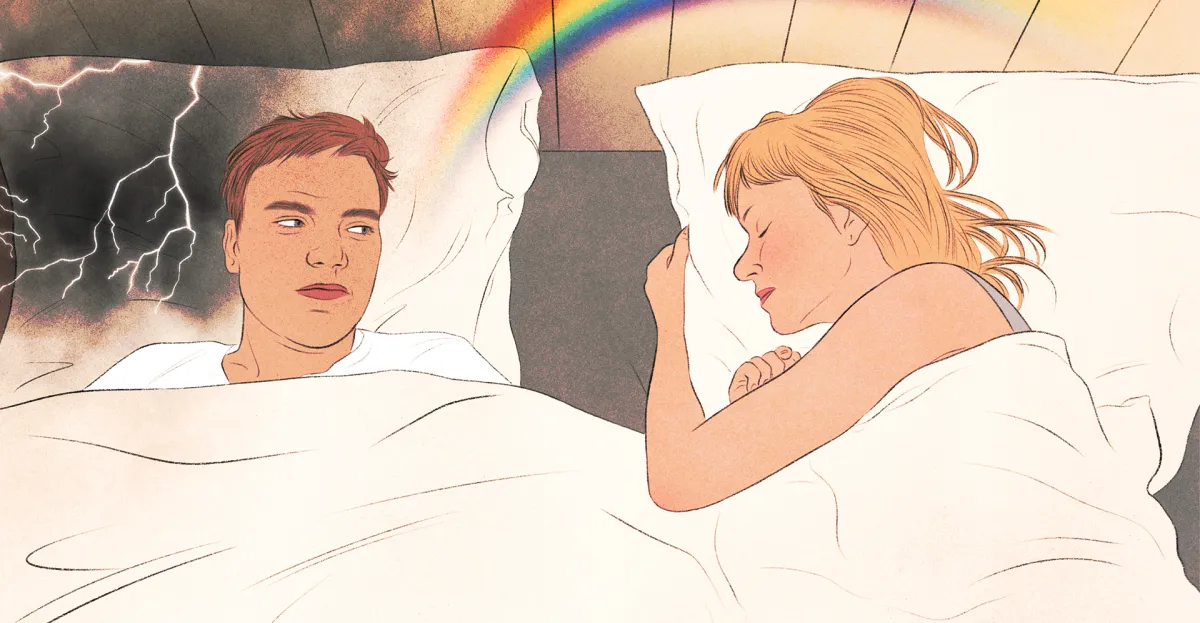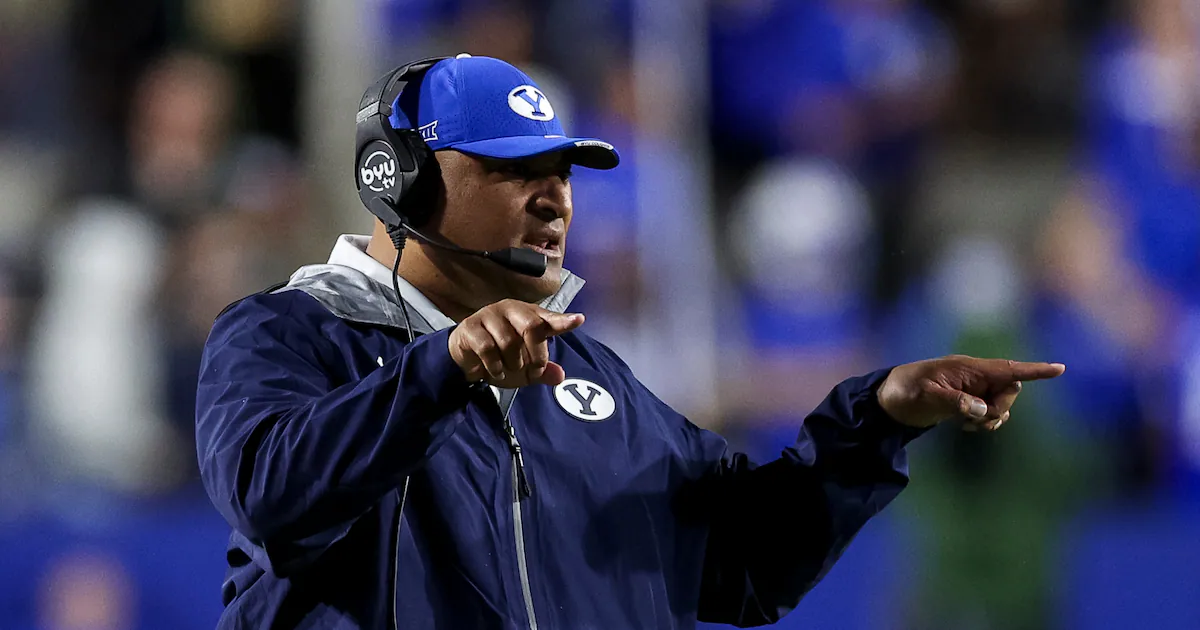Copyright Vox.com

Early into her relationship with Thomas, Leigh was on the fence. Those days should’ve been rife with butterflies and intrigue, but something was off. Sure, Thomas was kind, gentle, shy — in other words, unlike the guys she used to date — but Leigh was unsure if she found his attentiveness enticing or annoying. She was, in a word, ambivalent. Over the ensuing weeks, though, her attraction grew, and four months later, she was “bonded and invested” in Thomas. The feeling wouldn’t last. As soon as Leigh overcame her ambivalence, Thomas seemingly fell into his. “He became — and has maintained — a high level of avoidance through this relationship,” says Leigh, a 33-year-old psychologist who asked to be referred to by her middle name in order to speak about her relationship. “Actually, he’s become the highly ambivalent one. So he’ll be quite avoidant, and then if he sensed me pulling away just a little bit, then he comes running back.” And so the cycle continued for two-and-a-half years. Vox Culture Culture reflects society. Get our best explainers on everything from money to entertainment to what everyone is talking about online. Email (required) By submitting your email, you agree to our Terms and Privacy Notice. This site is protected by reCAPTCHA and the Google Privacy Policy and Terms of Service apply. Among the many unrealistic romantic ideals, the notion that your relationship must be nothing but positive is among the most misguided. “I call these the ‘Disney did us dirty’ ideas,” says licensed clinical psychologist Alexandra Solomon. Very few relationships are wholly uplifting and supportive, and just as many are outright toxic and dismissive. Everything else falls in the middle. Ambivalent relationships are marked by elements of both positivity and negativity — in other words, mixed feelings — and they’re incredibly common. Research has shown that nearly half of our social networks are made up of ambivalent connections: the in-laws who get on our nerves, the friend who sometimes makes jokes at our expense, and, yes, the partner who chronically forgets to put dishes in the sink. In a study of long-married couples, about 60 percent of participants reported feeling ambivalent toward their partner. The other 40 percent reported feeling pretty good about their marriages, according to Bert Uchino, a professor of social and health psychology at the University of Utah and one of the study’s authors. But maybe the researchers caught these couples on a good day. Perhaps reality is less rosy. While emotionally uncomfortable, ambivalence also leaves its mark on the body. In his decades of research, Uchino has found that interacting with (and even talking about) someone who has both positive and negative qualities results in higher blood pressure than engaging with someone who is purely positive. Similarly, receiving support from an ambivalent tie can increase blood pressure. Another study of older married couples found that people who both viewed their partner ambivalently and were perceived as ambivalent by their spouse had greater coronary-artery calcification, a hardening of the arteries. Still, mixed feelings don’t need to be seen as a threat to the relationship, a harbinger of impending doom, or a cause for stress — if only because they’re so common. It’s certainly possible to feel ambivalent toward a toxic partner, and ambivalent relationships can devolve into unhealthy ones. However, the reality of any given relationship may be much more banal, and therefore complicated. So where is the line between a relationship worth salvaging and one worth leaving? Indeed, in relatively healthy, non-abusive relationships, the presence of ambivalence can actually motivate couples to improve their communication or spend more meaningful time together. “A healthier narrative around ambivalence, I think, is warranted,” says Giulia Zoppolat, a postdoctoral researcher at Amsterdam University Medical Centers. “Understanding when it’s okay and a natural thing of life and then being able to recognize when instead, it’s more like an alarm bell of there is something really wrong here that I need to work on and [take] action on.” Signs of ambivalent relationships Ambivalence can come and go in phases, or it can become a defining feature of the relationship. You might move through periods where you feel confident your partner sees you, hears you, understands you, and others where the connection is strained. You could also experience a sustained bout of fence-sitting, unsure of whether you want in or out. Usually, ambivalence is predicated by transitional life moments, whether deciding to move in together, whether to remain faithful, or after having a kid. These are events that “pull forward both positive and negative behaviors,” according to Uchino. These trajectory-altering decisions could make you question all the pros and cons of the relationship. Is this the life I want? Do I want this life with this person? Is there someone else whom I could picture myself with? “This is not necessarily a bad thing,” Zoppolat says. “If you’re trying to make a big decision in your relationship — like, should we have a child together, should we move to a different city or country together? — these big life changes. It’s functional. It’s important to really think about the relationship and whether you want to make this big commitment with this person.” Within these crossroads, there may be inconsistencies in support that can also contribute to ambivalence, Zoppolat has found in her studies. Your partner might be engaged and active in childrearing some weeks and distant and unhelpful at other times. Outside of major life changes, the accumulation of routine and everyday arguments — domestic inequities, financial stress, how to prioritize one another — can snowball into relationship ambivalence. The realization that the person you live with doesn’t care about a sink constantly full of dishes, for instance, could be a source of ongoing negativity. The consequences of ambivalence Holding conflicting feelings toward your romantic partner impacts how you view the relationship — and your behavior within it. Ambivalence can lead to less intimacy, thoughts of breaking up, distress, anxiety, and lower well-being as well as declines in relationship and life satisfaction. This can lead to particularly volatile behavior, oscillating between supporting your partner and giving them the cold shoulder. Since it’s easier to feel entirely optimistic or completely hopeless about the relationship rather than a mix of both, it’s common to be pulled one way or the other. “We see that people are more likely to do constructive things, like wanting to resolve an issue in their relationship, want to spend more time with their partner in positive ways, and engage with their partner more positively,” Zoppolat says. “But there’s also a flip side where they may be more critical or want to distance from their partner.” To accept ambivalence is to embrace the humanity in another, flaws and all, to understand how even the most important relationships can be sources of negativity at times. Simply admitting your fence-sitting to yourself can feel threatening: This isn’t the fun, loving relationship I thought it was. This out-in-the-open ambivalence is detrimental to relationships, according to Ruddy Faure, an assistant professor of social and cultural psychology at Radboud University in the Netherlands. “In general, explicit ambivalence seems to be bad for relationships and for well-being in general,” he says. “People feel more stressed, less happy, and that typically relates to more negative relationship outcomes as well. People are less satisfied, more likely to break up.” Perhaps the conflicts are too deep, too difficult to solve — or shouldn’t be solved. No more excusing harmful behavior. There can be upsides to ambivalence, though. According to Solomon, maintaining contradictory feelings is a sign of emotional maturity. Ambivalence leads people to spend more time thinking about hardships in their relationship, but it also inspires them to improve it. These positive changes not only impact how you feel about your partner, but can also minimize the physical effects of ambivalence — the high blood pressure, the coronary-artery calcification — and therefore stave off any potential chronic health issues. “When you’re talking about something like cardiovascular disease, it’s a long-term, decades-long process,” Uchino says. Limiting the amount of time you walk around with high blood pressure because you occasionally hate your partner bodes well for your health. Dealing with mixed feelings So how do you keep the negative from outweighing the positive? Research lacks definitive answers. But anyone who feels unsafe in their relationship should feel inspired to end the relationship, says licensed marriage and family therapist Moe Ari Brown. In order to properly address ambivalence, you need to mine its roots, Brown says. What are you truly feeling? What feels off? Is there something you want to change about the relationship? Has time illuminated quirks and habits you find unsavory? What new wants and needs are you discovering? Are you unsure about the future of the relationship? Has the spark died? Then, try to determine if there’s an ask you can make of your partner that will increase connection. If your ambivalence stems from feeling like you no longer have fun together, try suggesting former (or new) rituals: You might need to start dating each other again. Keep the language positive, Solomon says, since “I’m feeling ambivalent about our relationship” isn’t likely to land. You could say something along the lines of, “I really missed how in the early months of our relationship we would always have a show we were watching together. Can we be a little more intentional about watching something?” instead of, “You don’t ever spend time with me.” Ultimately, working through ambivalence is an internal process. The tendency to make ambivalence the other person’s fault is a common reflex, and we often fail to recognize the role we play, the times we pull away, or the critical comments we make. But instead of ruminating over past arguments, make an effort to remember the positive moments, too: the memories of early dates, vacations, inside jokes. “Having these positive biases really help people move forward in their relationships and be able to forgive more easily,” Faure says. “Or also just being a little bit more persistent and invested in a relationship, even when the relationship is going through a rough patch.” To accept ambivalence is to embrace the humanity in another, flaws and all, to understand how even the most important relationships can be sources of negativity at times. Even the fairy tale romances have their fair share of ups and downs. Research shows that simply being aware of the less-than-positive emotions you harbor toward your partner can help you regulate your emotions, have more constructive conversations, and lead to greater relational satisfaction. Romantic ambivalence may not be the ideal, but it’s normal, and certainly preferable to the alternative. As for Leigh and her ambivalent boyfriend Thomas, his hot-and-cold tendencies would ultimately be the couple’s undoing. Earlier this year, he insisted Leigh move in with him, only for him to reverse course three months later — after she’d already made herself at home. “It absolutely broke everything in me, and so I just receded from him,” Leigh says. They’ll cohabitate through the end of their lease, but have effectively split. The most heartbreaking part for Leigh is that despite her initial hesitations and his perpetual ambivalence, their connection grew. After all the breakdowns and reconciliations, she couldn’t stomach another. “This time,” Leigh says, “where do I rebuild from here?”



